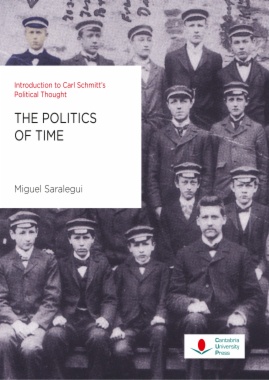Carl Schmitt is the last thinker to provide a complete, original definition of politics. His work influences many debates in contemporary political theory through a collection of concepts he created: political theology, the katechon, friend and enemy. Despite how influential his ideas are, they tend to be employed metaphorically, and sometimes incorrectly. This miscalculation is due to Carl Schmitt himself, who never gave us a final, complete version of his political thought, or even of some of his most famous concepts. In this book, I aim to reconstruct his political thought using three key concepts: political theology, the concept of the political, and the theory of modernity. To do so, I have consulted all his published works, but also the archival documents, in particular those with ties to Spain, which had previously received little attention. This reconstruction offers readers a qualitative introduction to Schmitt’s political thought that aims to blend logical clarity with document-based evidence.
- Cover
- Title page
- Copyright page
- Contents
- Acknowledgements
- Introduction
- 1 Political Theology and the Formality of Zentralgebiet
- The Success of Political Theology
- Types of Secularization
- The Three Meanings of Political Theology
- Political Theology. The Identity between Religion and Politics
- The Common Structure between Theology and Politics
- Political Theology as a Theory of Secularization
- Terminological Examination. The Path to Zentralgebiet
- The Meaning of Political Theology
- Political Theology and Determinism
- How Political Theology Determines
- The Political Theology and the Political Regime
- The Intellectual as the Predictor of the next Zentralgebiet
- Two Concepts of Theology
- The Limits and Discoveries of Modernity as Political Theology
- 2 The Political as Imperfect Recognition
- The Destruction of The Concept of the Political
- The Precedence of Friendship
- The ‘ought to be’ of Imperfect Recognition
- The Theological Justification of Imperfect Recognition
- Original Sin: Alpha and Omega of Political History
- The Katechon: Original Sin in the End of History
- Is a Doctrine of Original Sin Required to Accept Imperfect Recognition?
- Death as a Condition of Political Grouping
- The Emptiness of the Political
- The Objective Emptiness: the Political without Content
- Subjective Emptiness: the Political with no Institution
- Look for Coherence between Political Theology, The Concept of the Political and The Nomos
- The Double Limitation of Conflictuality: Internal Perfection to External Lack of Control
- Achievable Peace
- Moderate Persecution of the Enemy
- Was the Jew the Internal Enemy of Nazi Germany?
- Sovereignty. The Vacuity of Logical Contradiction and the Gravity of Practical Contradiction
- 3 Modernity and Postmodernity: Chronology as Philosophy of History
- The Automatism of National Order and the Creativity of International Order
- Modernity: the Perfection of Imperfect Order
- Modern Order as a Refuge for the Political
- From Critique to Demand for State Neutralization
- Asymmetric Globalization
- Possible Utopia: Limitation of War
- Just War and the Impossibility of Eliminating War
- The Long 19th Century: 1848-1979
- Conservative Marginalization and Liberal Depreciation
- 1848 as a Measure of History
- The Victory of 1848 over 1789
- 1848: The Total Revolution
- The Great Revolution, but what Revolution?
- Total Revolution and Total Authority
- The End of the 19th Century, the End of History
- The Geschichtsbild as Vindication of an Accidental Philosophy of History
- References
- Index of names

